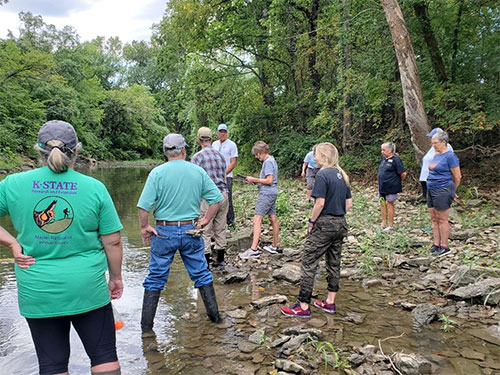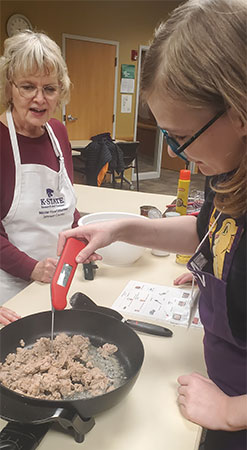Why Do We Volunteer?
An effective leader knows that volunteers are people who have chosen to participate in a project, and that they can at any time choose other options. And they probably will if their experience is not a positive one.
 Generally, volunteers can be categorized based on whether they want to make a long-term or short-term commitment. One type of volunteer is not better then another. However, their interests and motivations are somewhat different, leading to different levels and kinds of involvement. The same individual can be a short-term volunteer with one project and a long-term volunteer with another. Both are important to the success of any project.
Generally, volunteers can be categorized based on whether they want to make a long-term or short-term commitment. One type of volunteer is not better then another. However, their interests and motivations are somewhat different, leading to different levels and kinds of involvement. The same individual can be a short-term volunteer with one project and a long-term volunteer with another. Both are important to the success of any project.
What motivates you to give of your time, energy and expertise back to the community? How do you go about the task of matching an organization or a cause which motivates you to give back? The following are some typical reasons and implications for the why we engage in volunteerism.
-
To make a difference:
Many people volunteer because they want to make things better, to fix a problem, to produce something for others in the community. Wanting to make a difference means wanting to see results.
-
To be with people:
Volunteering can help you to meet new people in the community. It can be a way to develop networks that help you professionally. It can also provide an opportunity for family members to be together by volunteering together.
-
To gain experience:
 Volunteering for a project can help you learn more about important community issues or opportunities. This activity assists you to develop skills which transfer to your work world and provide experience which looks good on a resume.
Volunteering for a project can help you learn more about important community issues or opportunities. This activity assists you to develop skills which transfer to your work world and provide experience which looks good on a resume.
-
To respond to a sense of duty:
Sometimes you volunteer because, it is simply the “right thing to do.” Your effort may come from a desire to give something back to the community. It may be based on religious convictions or other values. Many community volunteers come from families with a tradition of volunteering and assume that it is a normal part of life.
-
To have fun:
Volunteering is work. But work does not have to be oppressive. Remember you are not doing this for a paycheck. If your experience is unpleasant, you can always do something else.
Our Johnson County, K-State Research and Extension office has a multitude of volunteer opportunities to engage you in the community. The formal volunteer programs such as Extension Master Naturalist (EMN), Extension Master Gardener (EMG), Extension Master Food Volunteer (EMFV) and 4-H Youth Development have steps to become involved and help support you in these efforts.
Please visit our Volunteers page to explore other ways to become active in the community.
Source:
Adapted from the “The Community Leadership Handbook” Framing Ideas, Building Relationships and Mobilizing Resources by James F. Krile, 2006.